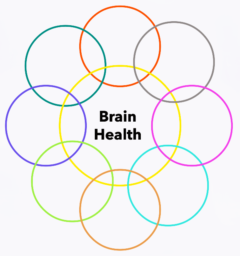Environmental toxins are harmful substances that come from various sources and can wreak havoc on our health. We’re talking about chemicals in the air we breathe, pollutants in water, toxic mold, and even toxins hidden in food and everyday products. These unwanted guests can sneak into our bodies without us even realizing it, eventually making their way to one of our most vital organs – the brain.
The brain’s complex structure and the pivotal role it plays in controlling everything we do make it particularly vulnerable. Once these toxins enter our bloodstream, they can cross the blood-brain barrier, a protective shield meant to keep out harmful substances. Unfortunately, not all toxins are kept out, leading to potential brain damage or dysfunction over time.
The effects of these environmental toxins on brain health can range from subtle mental fuzziness to more serious conditions like cognitive decline, developmental disorders, or neurodegenerative diseases. A child’s developing brain is especially at risk, as exposure during critical growth periods can lead to long-term developmental issues.
Being aware of how and where these toxins originate is crucial. Industrial emissions, agricultural chemicals, household cleaning products, and even cosmetics can be culprits. Knowledge is power here. Knowing what’s in your environment helps you take steps to protect yourself and your family.
How the Environment Affects Brain Health
The air we breathe, the water we drink, and the food we eat can have a huge impact on the brain’s condition. Pollutants from vehicles, factories, and even construction sites can carry small particles that make their way into our bodies and affect neurological health. This isn’t just about living near industrial areas, either. Air quality indoors matters just as much since household ventilation plays a big role in keeping those pollutants out.
Water quality is another biggie. Contaminated water sources may harbor toxins like lead or mercury, both of which have been linked to cognitive issues and developmental delays. Ensuring your water supply is clean and safe is a step you can take to protect your brain health.
The environment isn’t limited to air and water. It’s also about what you eat and how you live. A diet rich in fruits, vegetables, and whole grains is your brain’s best friend. These foods help reduce oxidative stress and inflammation, supporting overall brain function. Plus, keeping an active lifestyle, managing stress, and getting enough sleep all contribute to a healthy environment for your brain.
Your physical surroundings can also influence brain health. Noise pollution, for instance, can disrupt sleep patterns and increase stress levels, while cluttered or restrictive environments can negatively impact brain function. Creating a calm and orderly space for yourself aids mental clarity and focus.
Remember, it’s not just the physical environment that impacts the brain. Mental and social environments are just as crucial. Positive interactions, engaging activities, and mental challenges can stimulate the brain and enhance cognitive reserve, improving resilience against environmental toxins.
Symptoms of Toxins in the Brain: What To Look Out For
Exposure to environmental toxins can manifest in a variety of ways, and understanding these symptoms is key to early intervention. Often, the first signs are subtle and easy to overlook.
Persistent headaches and unexplained fatigue are common complaints. If you find yourself struggling with these, it might be time to consider whether environmental factors could be at play.
Cognitive issues such as memory lapses, difficulty concentrating, and confusion can also signal the presence of toxins. These symptoms can affect anyone but may be especially concerning in developing children since they can lead to long-term consequences.
Mental health symptoms like anxiety, depression, or mood swings might not immediately make you think of toxin exposure, but they can be warning signs. The brain’s chemical balance is easily disrupted by toxins, leading to emotional and psychological changes.
Physical symptoms shouldn’t be ignored, either. Dizziness, nausea, or vision problems could hint at neurotoxic effects.
Being proactive means paying attention to these signs and consulting healthcare professionals if you notice patterns or combinations of them. Early detection can make all the difference, potentially minimizing long-term damage and improving quality of life.
Types of Environmental Toxins Affecting Brain Development
Heavy metals are among the most concerning environmental toxins when it comes to brain health. Exposure to lead, often found in older pipes and paints, can interfere with cognitive function and development, especially in children. It’s important to check your home environment for these potential hazards.
Mercury is another heavy hitter, primarily found in certain fish and industrial emissions. Regular consumption of high-mercury fish, like swordfish or shark, can lead to significant neurological issues over time.
Pesticides used in agriculture also pose serious risks. These chemicals can linger on fruits and vegetables, potentially affecting the nervous system over extended periods. Opting for organic produce or thoroughly washing your groceries is a simple yet effective way to reduce exposure.
Industrial chemicals such as PCBs and dioxins, often byproducts of manufacturing, are both persistent in the environment and highly toxic. They can accumulate in the body, leading to cognitive and behavioral issues. Limiting exposure to these involves advocating for stricter regulations and staying informed about local industrial activities.
Biotoxins are harmful substances produced by living organisms, such as bacteria, virus, molds, plants, or animals. These toxins can enter the body through various routes, including ingestion, inhalation, or skin contact, and can cause a range of health issues. When it comes to brain health, biotoxins can be particularly dangerous because some have the ability to cross the blood-brain barrier, leading to neurotoxic effects. Minimize mold exposure by keeping living spaces dry and well-ventilated. Regularly clean heating vents and change heating and air conditioning system filters. Regularly wash bedding, including pillows and mattress pads, in hot water.
Even everyday household products can be culprits. Many cleaning agents, air fresheners, and cosmetics contain toxins that can leach into the air we breathe or the surfaces we come into contact with. Reading labels and choosing environmentally friendly products can help keep these toxins at bay.
Protecting You r Brain from Environmental Toxins
Taking proactive steps is essential to safeguarding your brain from the harmful effects of environmental toxins. Start by minimizing your exposure. This might mean investing in a good air purifier, especially if you live in areas with high air pollution, or ensuring your home’s ventilation system is up to par.
Choosing organic whenever possible reduces pesticide intake. Even small changes like washing fruits and veggies thoroughly can make a big difference. Paying attention to fish consumption and opting for low-mercury varieties such as salmon or shrimp can also help.
A diet packed with antioxidants plays a vital role in defending against toxins. Foods like berries, nuts, and leafy greens help neutralize harmful free radicals and support brain health. Staying hydrated is equally important, as water helps flush toxins out of the body.
Lifestyle adjustments like regular physical activity, sufficient sleep, and stress management are your allies in building stronger defenses against environmental threats.
Advocating for cleaner environments is key. Supporting policies that aim to reduce industrial emissions and regulate harmful substances can lead to broader societal change. Every voice counts and being informed allows you to make an impact not just for yourself, but for future generations too.



